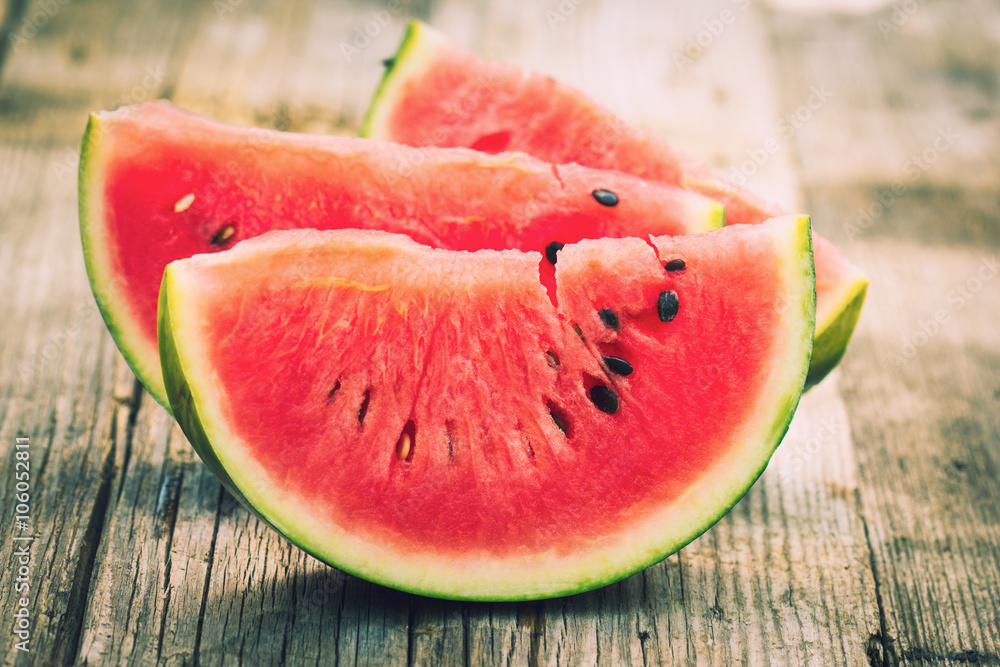
Introduction: The Importance of Hydration

Hydration is a fundamental aspect of maintaining overall health, particularly during periods of elevated temperatures. As the mercury rises, the body’s need for adequate fluid intake becomes even more critical. Proper hydration is essential for regulating body temperature, supporting metabolic processes, and maintaining the health of vital organs. When the body is exposed to hot weather, it loses fluids more rapidly through sweating, making it imperative to replenish these losses to prevent dehydration.
Women, in particular, have unique hydration needs influenced by various physiological factors. Hormonal fluctuations during menstrual cycles, pregnancy, and menopause can affect fluid balance and increase susceptibility to dehydration. Additionally, women tend to have a higher percentage of body fat and lower total body water content compared to men, which can impact how fluids are distributed and retained in the body. Therefore, understanding and addressing these specific hydration requirements is crucial for women to maintain optimal health.
Neglecting proper hydration can lead to a range of adverse health effects. Mild dehydration may cause symptoms such as headaches, fatigue, and dizziness, while severe dehydration can result in more serious conditions like heat exhaustion or heat stroke. For women, dehydration can also exacerbate menstrual discomfort and negatively impact skin health, leading to dryness and premature aging. Furthermore, staying hydrated is vital for cognitive function, as even mild dehydration can impair concentration, mood, and overall mental performance.
Overall, recognizing the importance of staying hydrated, especially in hot weather, is essential for preserving health and well-being. By prioritizing adequate fluid intake and being mindful of individual hydration needs, women can better manage the challenges posed by high temperatures and ensure their bodies function optimally.
Understanding Dehydration: Symptoms and Risks

Dehydration is a condition that occurs when the body loses more fluids than it takes in, leading to an insufficient level of water to carry out normal functions. Recognizing the symptoms of dehydration early is crucial for maintaining health, especially during hot weather. Common symptoms include dry mouth, fatigue, dizziness, and a decreased frequency of urination. These symptoms can escalate quickly, leading to more severe health issues if not addressed promptly.
For women, the risks associated with dehydration are particularly significant. Hormonal imbalances caused by dehydration can disrupt the regular menstrual cycle and exacerbate conditions such as premenstrual syndrome (PMS). Additionally, women are more prone to urinary tract infections (UTIs) when dehydrated. The lack of adequate water can lead to a higher concentration of bacteria in the urinary tract, increasing the risk of infection.
Another critical aspect to consider is the impact of dehydration on women’s skin health. Dehydration can lead to dry, flaky skin and even increase the appearance of fine lines and wrinkles. Staying hydrated is essential to maintaining skin elasticity and overall skin health.
Recognizing the symptoms of dehydration and understanding the specific risks posed to women can help in taking proactive measures to stay hydrated. Drink plenty of water throughout the day, especially during periods of increased physical activity or exposure to hot weather. Additionally, incorporating water-rich foods such as fruits and vegetables into your diet can aid in maintaining proper hydration levels.
Being aware of the signs and risks of dehydration can empower women to take control of their health. Early recognition and intervention are key to preventing the serious health complications that can arise from dehydration. Stay vigilant, listen to your body, and ensure you are consuming enough fluids to support your overall well-being.
Daily Water Intake Recommendations for Women
Maintaining proper hydration is crucial for overall health, especially for women who face varying hydration requirements throughout different life stages. On average, it is recommended that women consume approximately 2.7 liters (91 ounces) of water per day from all beverages and foods. However, this guideline can fluctuate based on several factors such as age, weight, activity level, and environmental conditions.
As women age, their bodies undergo significant changes that can affect hydration needs. For instance, during the reproductive years, menstruation can lead to increased water loss, necessitating a higher intake to compensate. Pregnancy and breastfeeding further elevate the need for fluids. Pregnant women are advised to consume about 3 liters (101 ounces) of water daily, while breastfeeding mothers should aim for around 3.8 liters (128 ounces) to support milk production and maintain their own hydration levels.
Menopause also brings about changes in water requirements. The decline in estrogen levels can lead to a decrease in body water content and an increased risk of dehydration. Women in this stage of life should pay close attention to their fluid intake, ensuring they meet or exceed the general recommendation to counteract these physiological changes.
Activity level is another critical factor influencing hydration. Women who engage in regular physical exercise or strenuous activities need to consume additional water to replace fluids lost through sweat. It is generally suggested to drink an extra 1.5 to 2.5 cups (12-20 ounces) of water for short bouts of exercise, and more for extended or intense activities.
Furthermore, hot weather significantly impacts hydration needs. High temperatures lead to increased perspiration, which in turn, raises the body’s demand for water. Women living in or visiting hot climates should increase their daily water intake by at least 2 to 4 cups (16-32 ounces) to prevent dehydration and ensure optimal body function.
In conclusion, while the general recommendation provides a baseline, women must consider these various factors to tailor their daily water intake for optimal health and well-being.
Best Practices for Staying Hydrated This Summer

Staying hydrated is crucial for maintaining optimal health, especially during hot weather. Women can adopt several practical strategies to ensure they meet their daily hydration needs. One effective method is to carry a reusable water bottle throughout the day. This simple habit not only provides a constant reminder to drink water but also makes it convenient to take sips frequently. Opt for a bottle that is easy to carry and has volume markers to help track water intake.
Setting reminders can significantly aid in meeting hydration goals. Utilize smartphone apps or alarms to prompt regular drinking intervals. This is particularly beneficial for those with busy schedules who might forget to hydrate adequately. Additionally, linking water intake to routine activities, such as drinking a glass of water after brushing teeth or during meal times, can create consistent hydration habits.
Incorporating hydrating foods into the diet is another effective way to boost fluid intake. Fruits and vegetables like cucumbers, watermelon, oranges, and strawberries have high water content and can contribute significantly to overall hydration. Including soups, broths, and smoothies in meals also helps to increase fluid consumption.
Monitoring fluid intake is essential to ensure that hydration levels are adequate. A simple way to gauge this is by observing urine color; light-colored urine generally indicates proper hydration, while dark yellow may signal a need for more fluids. Advanced methods include using hydration tracking apps that offer detailed insights and personalized recommendations based on individual activity levels and environmental conditions.
Recognizing signs of dehydration is critical. Symptoms such as dry mouth, headache, dizziness, and fatigue are indicators that more fluids are necessary. Addressing these early signs can prevent more severe health issues associated with dehydration, such as heat exhaustion or urinary tract infections.
By adopting these best practices, women can effectively manage their hydration levels, ensuring they stay healthy and energized even in the hottest conditions.
Hydrating Foods and Beverages to Include in Your Diet

Staying hydrated is crucial, especially during the sweltering summer months. Incorporating hydrating foods and beverages into your diet can significantly enhance your overall hydration levels. Fruits, vegetables, and specific drinks not only provide essential nutrients but also have high water content, aiding in maintaining optimal hydration.
Watermelon is a prime example of a hydrating food. Comprising about 92% water, it’s a refreshing and delicious way to boost your fluid intake. Watermelon can be enjoyed on its own, added to salads, or blended into smoothies for a hydrating treat. Cucumbers are another excellent choice, containing about 95% water. They can be sliced and added to salads, sandwiches, or infused in water for a cooling, hydrating drink.
Herbal teas are another fantastic way to stay hydrated. Unlike caffeinated beverages, herbal teas such as chamomile, peppermint, and hibiscus are not diuretics and can contribute to your daily water intake. They can be enjoyed hot or iced, making them a versatile option for hydration. Additionally, coconut water is an excellent beverage for hydration. It is rich in electrolytes like potassium and magnesium, which are essential for maintaining fluid balance in the body. Coconut water can be consumed directly or used as a base for smoothies and other drinks.
Incorporating these hydrating foods and beverages into your diet is relatively simple. Start by adding a serving of watermelon or cucumber to your breakfast or as a mid-morning snack. Replace your usual afternoon coffee with a refreshing herbal tea, or keep a bottle of coconut water handy for a hydrating boost throughout the day. By making these small changes, you can enhance your hydration levels and support your overall health, especially during hot weather.
The Role of Electrolytes in Hydration

Electrolytes are vital minerals, such as sodium, potassium, calcium, and magnesium, that carry an electric charge and play a crucial role in maintaining fluid balance within the body. These minerals ensure that cells, tissues, and organs function optimally. Electrolytes help regulate nerve and muscle function, hydrate the body, balance blood acidity and pressure, and help rebuild damaged tissue.
For women, maintaining an appropriate balance of electrolytes is particularly important, especially during periods of intense heat or physical activity. Women are more susceptible to electrolyte imbalances due to hormonal fluctuations that can affect fluid retention and loss. Sweating, for instance, causes the body to lose not just water but also essential electrolytes, making it imperative to replenish them to prevent dehydration and other health issues.
Ensuring adequate intake of electrolytes can be achieved through a balanced diet rich in natural sources of these vital minerals. Foods such as bananas, which are high in potassium, dairy products rich in calcium, leafy greens like spinach containing magnesium, and salty snacks providing sodium can all aid in maintaining electrolyte levels. Coconut water is also an excellent natural source, offering a balanced mix of electrolytes without added sugars or artificial ingredients.
During periods of excessive heat or strenuous exercise, women might also consider electrolyte supplements to quickly restore balance. These supplements come in various forms, including powders, tablets, and drinks, and are designed to provide a quick and effective boost of essential minerals. However, it is crucial to choose supplements that do not contain excessive sugars or artificial additives, as these can negate the benefits.
Incorporating these practices into your daily routine can significantly enhance hydration, improve overall health, and help maintain optimal bodily functions, particularly during challenging conditions.
Addressing Common Hydration Myths
When it comes to staying hydrated, several misconceptions can lead to inadequate fluid intake, particularly among women. One pervasive myth is that only water can effectively hydrate the body. While water is undoubtedly a crucial component of hydration, it is not the sole option. Beverages such as herbal teas, milk, and even coffee in moderate amounts can contribute to your daily fluid intake. Additionally, many fruits and vegetables, like cucumbers, oranges, and watermelon, have high water content and can aid in keeping you hydrated.
Another widespread myth is the belief that you should only drink when you’re thirsty. Thirst is indeed a natural signal from your body, but it often lags behind your actual hydration status. By the time you feel thirsty, you might already be mildly dehydrated. Women, in particular, need to be proactive about their fluid intake, especially during pregnancy, breastfeeding, or menstruation, when fluid needs can increase. It is advisable to drink small amounts regularly throughout the day rather than relying solely on thirst signals.
Some people also believe that clear urine is the only indicator of proper hydration. While urine color can be a useful gauge, it’s not the definitive measure. Factors such as diet, medications, and even certain vitamins can alter urine color. A better approach is to monitor the frequency and volume of your urination. Generally, urinating every few hours and producing a moderate volume of light-colored urine are good signs of adequate hydration.
Lastly, it is often assumed that drinking large quantities of water at once is beneficial. However, this can lead to a condition called hyponatremia, where the sodium levels in your blood become dangerously low. It is more effective to sip water consistently throughout the day instead of consuming large amounts in a short period.
Understanding and debunking these myths can help women make informed choices about their hydration strategies, ensuring they stay healthy and hydrated, especially during hot weather conditions.
Prioritize Hydration for Long-Term Health, Not Just Hot Girl Summer
Throughout this blog post, we have delved into the critical importance of maintaining adequate hydration, particularly for women, amid sweltering temperatures. Hydration is not merely a fleeting concern but a cornerstone of overall health and well-being. Proper fluid intake supports essential bodily functions, including temperature regulation, joint lubrication, and nutrient transportation. During hot weather, the body’s demand for water increases significantly, making it imperative to stay vigilant about hydration.
We have explored various strategies to ensure sufficient hydration, such as consuming water-rich foods, opting for electrolyte-infused beverages, and establishing a regular drinking schedule. By integrating these practices into daily routines, women can effectively combat the adverse effects of dehydration, which include fatigue, dizziness, and impaired cognitive function. Moreover, staying hydrated can enhance physical performance, improve skin health, and contribute to better digestive processes.
Recognizing the signs of dehydration early on is crucial. Symptoms such as dry mouth, dark urine, and decreased urine output should not be ignored. By being proactive and attentive to these signals, individuals can take immediate steps to rehydrate and prevent more severe complications.
In conclusion, the significance of hydration extends beyond temporary relief from heat. It is a fundamental aspect of maintaining long-term health and vitality. Women, in particular, should prioritize their hydration needs, especially during periods of intense heat. By adopting the recommended tips and practices, readers can ensure they stay adequately hydrated and enjoy the myriad benefits that come with it.
We encourage you to take the knowledge shared in this blog post to heart and make hydration a non-negotiable part of your daily regimen. Your health and well-being are worth the effort. Stay hydrated, stay healthy.
For more women’s health and fitness tips, download the Slim Fitness app for your Android or iPhone device!




